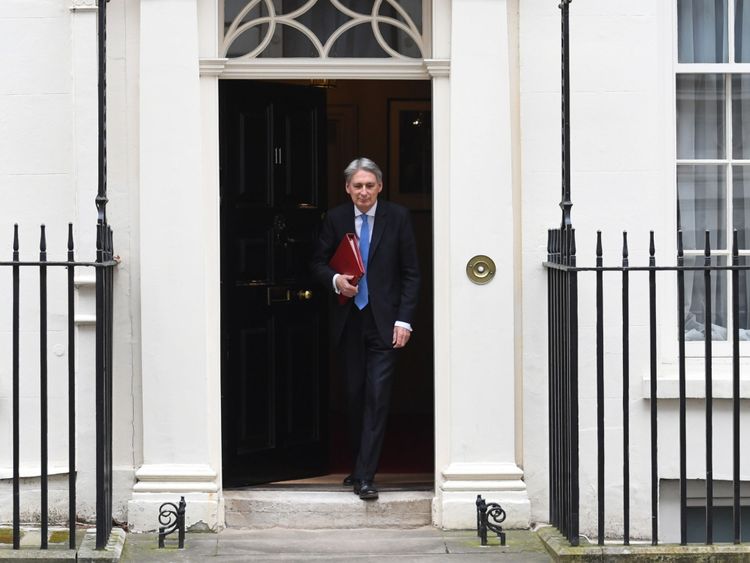This was the most revealing sentence of the Chancellor’s spring statement.
It rather acknowledged that, contrary to some excitable advance comment, the official growth predictions were still very sluggish for an advanced economy in the middle of a sustained surge in global growth.
That was attached to the news of a tiny upgrade to predicted growth in 2018, to 1.5%.
However, in the small print at the same time, growth in 2021 and 2022 had been downgraded by 0.1%.
Never before have we had a five-year stretch of growth at 1.5% or below, but this is what the Office for Budget Responsibility (OBR) now forecasts over the course of this Parliament.
So, Philip Hammond’s self-proclaimed “Tigger-like” turn – designed to throw off accusations of pessimism from Conservative backbenchers – appears to be somewhat premature, given the numbers the Chancellor presented showing UK GDP growth now bottom of the G7 league table (having topped it in mid-2016).
But, Mr Hammond sounded more than just Tiggerish in stating the forecasts could be beaten.
He also asserted the “remarkable jobs story” was “set to continue”.
That sets a high standard by which the Chancellor has chosen to be judged, especially at a time when the unemployment numbers have started to creep up, and pressure on the consumer is evident from the widespread difficulties of retailers.
One chancellor’s optimism is another’s hostage to fortune.
And, all that is before Brexit.
We know what Mr Hammond’s Treasury economists think privately of leaving the EU from the Government’s leaked impact reports.
The OBR was officially told nothing of the Government’s Brexit plans, apart from being advised to re-read the Prime Minister’s Florence speech.
“We still have no meaningful basis for predicting a precise outcome,” the OBR wrote in its new forecast when referring to the UK’s exit from the EU.
Indeed, one of the spring statement’s few substantive policy announcements was the release of half of the £3bn set aside for “no deal” planning into Government departments.
It was inevitable given this unwanted – but plausible – outcome to Brexit talks could materialise in just 12 months.
The Home Office will get £395m for its new registration system and, among other things, the Department for Environment, Food and Rural Affairs receives £310m as one of the most impacted departments. HMRC, which has to somehow keep frictionless trade outside a customs union, gets £260m.
Almost all departments are being given taxpayers’ money to prepare for Brexit.
Mr Hammond’s appearance of optimism also hinged on better than expected tax receipts, leading to a faster reduction in the deficit.
But, the OBR indicated it felt that such performance was a one-off.
For good measure, the economists calculated that even these sluggish rates of growth represented an economy driving ahead at full capacity.
On the upside, unlike previous fiscal events, it looks like there can be no U-turns by the Chancellor.
But that is only because there are no significant measures.
Austerity is not ending, but the fundamental quality any newish Chancellor requires is fiscal credibility.
Mr Hammond’s debut budget in 2016 foundered on the immediate reversal of his national insurance plans.
The political dividing line the Chancellor wants with Labour, through his cautious balanced approach to eventually eliminating the deficit, is clear.
The problem is that June’s snap general election showed many millions of voters were unmoved by the need for fiscal prudence.
Shadow chancellor John McDonnell said the deficit was being balanced on the back of the NHS and public sector workers, and called reports of coming offers on NHS pay “miserly”.
The squeeze in council spending is also materialising in front of the eyes of voters.
No opportunity was taken in this announcement to ease that immediately. Difficult local elections for the Tories now loom in seven weeks’ time.
In short, perhaps this was a premature outing for the new Tiggerish Hammond.
Perhaps the gentle simplicity of Winnie the Pooh himself would have been more fitting.
“Rivers know this: there is no hurry. We shall get there some day,” as Pooh once said – but not about the deficit.
From – SkyNews


